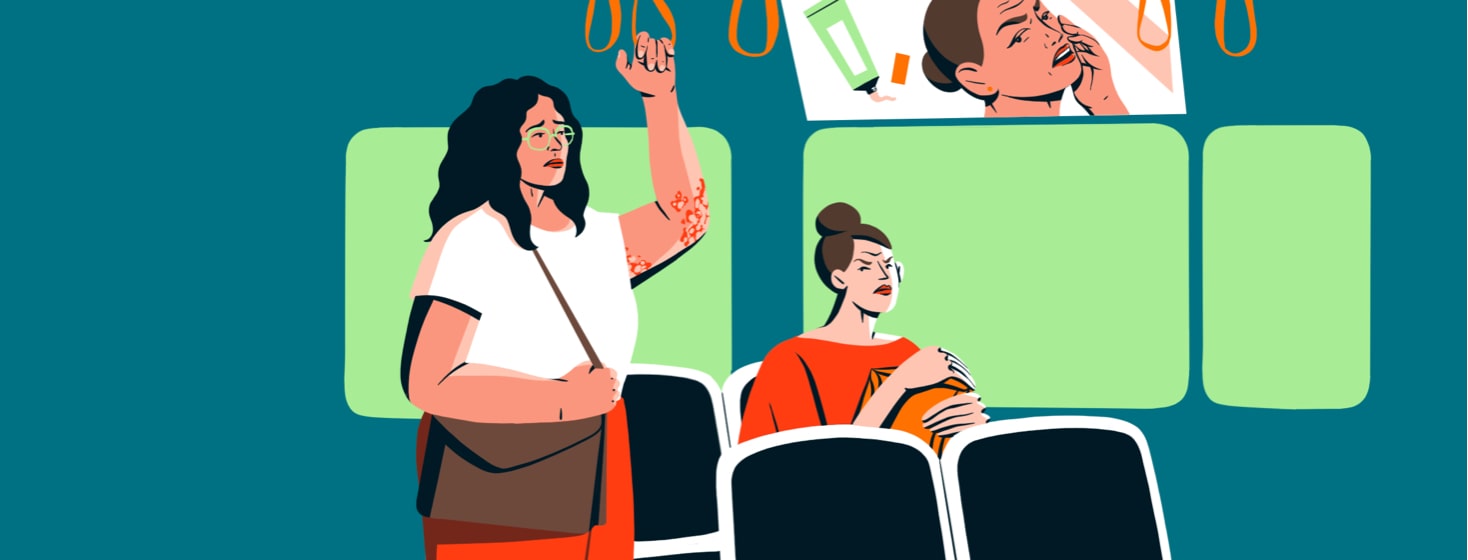Skin Shaming Is Not Okay
Growing up as a girl in the 90s, I found myself absolutely bombarded with commercials and print magazine advertisements about perfect skin. Beauty was all-important, and falling into one type of beauty was key. Acne just wasn’t considered tolerable or normal, nor were scars or any sort of skin condition.
These skin issues became personal or moral failures — as if you were dirty or freakish, and thus, inherently unworthy. We romanticize the 90s, but do we forget how hostile the landscape really was?
The pressure of perfect skin
In the 90s, we were told to have smooth hair, a thin body, and perfect skin. The beauty goals were nearly unattainable for most of us...because well, we are human. And we are all different.
I remember getting poison ivy multiple times as a teenager, which would lead to hospitalization and then scarring after I’d healed from the vicious, red lumps that grew all over my body. My skin would be red and swollen for weeks, looking like I'd been punched or fallen down the stairs.
Obviously, this did not bode well for middle school or high school girls. People looked at me or made fun of me directly to my face.
Skin shaming hasn't gone away
While things have gotten a little better since the 90s, and while natural beauty — faces with "flaws" and marks and skin conditions — now has its place in the conversation, I have still noticed instances of skin shaming.
For example, a friend’s friend (who has psoriasis and is an actor) says that she was told to use makeup to cover up her plaques when auditioning because she didn’t want to make people feel uncomfortable or “gross them out.”
I was appalled when I heard this, because the default certainly still is perfect skin, and because the onus shouldn't be on the disabled or chronically ill to make everyone around them feel comfortable. Or be better people.
These expectations are dangerous.
I know that when I’ve been on the subway here in New York City, standing up while holding the rail or sitting on the seat — basically, in public — I’ve been looked at or gawked at for having a patch or two of psoriasis. And mine is incredibly mild, so I can’t imagine what people go through when theirs is more visible.
Why do we carry so much shame in our bodies? And why do we expect that or demand that of others? If something within us is making us sick or if our chemistry is off — which then externalizes the issue through spots or plaques or what have you — how is this not treated with compassion?
Why is perfect skin the only acceptable skin? And why haven't we realized those beauty standards are dangerous and unrealistic? These complex issues are obviously rooted in capitalism, classism, sexism, and racism.
It’s a much bigger issue than I am capable of speaking to here. But it’s something we have to be aware of and fight against.

Join the conversation